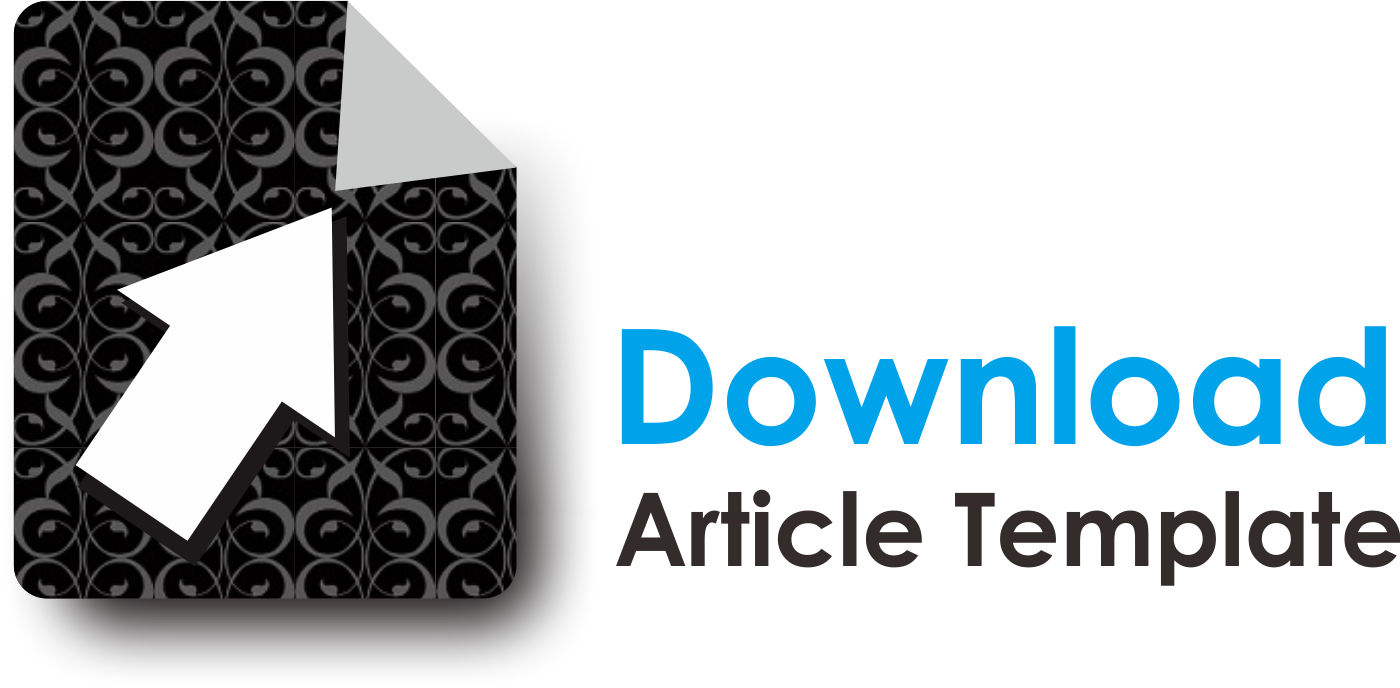The Islamic Discourses of Indonesian Islamist Organizations
Abstract
Artikel ini mengkaji bahasa politik Islam di Indonesia yang digunakan oleh HTI dan FPI, yaitu; khilafah, Islam kaffah, NKRI Bersyariah, dan imam besar. Istilah itu diambil dari media-media, baik media internal mereka maupun eksternal. Selain itu juga poster-poster yang banyak bertebaran di dalam pemberitaan- pemberitaan. Istilah-istilah tersebut terutama diambil ketika dua organisasi masa itu masih eksis, sebelum dibubarkan. HTI dibubarkan pada 2018 dan FPI pada 2020. Tujuan dari penelitian ini adalah untuk menelusuri maksud dan sasaran dari istilah-istilah tersebut. Istilah-istilah tersebut akan dibedah dengan menggunakan analisa wacana kritis model Fairclough, Wodak, dan van Dick. Hasil penelitian menunjukkan bahwa istilah-istilah itu digunakan untuk meminggirkan beberapa istilah popular yaitu Negara Kesatuan Republik Indonesia (NKRI), NKRI Harga Mati, Undang-Undang Dasar 1945, dan presiden.
Keywords
Full Text:
PDFReferences
Abdurrahman, H. (2014). Mafahim Islamiyah. Al-Azhar Press.
Ahnaf, M. I. (2009). Between revolution and reform: The future of Hizbut Tahrir Indonesia. Dynamics of Asymmetric Conflict, 2(2), 69–85. https://doi.org/10.1080/17467580902822163
Al-Amin, A. R. (2014). Demokrasi Perspektif Hizbut Tahrir versus Religious Mardomsalari ala Muslim Iran. Islamica: Jurnal Studi Keislaman, 8(1), 28–58. https://doi.org/10.15642/islamica.2013.8.1.28-58
Al-Faruqi, I. R., & Al Faruqi, L. I. (2000). Atlas budaya Islam: Menjelajah khazanah peradaban gemilang. Mizan.
Al-Rasheed, M., Kersten, C., & Shterin, M. (Eds.). (n.d.). Demystifying the Caliphate: Historical Memory and Contemporary Contexts. Hurst.
Amalia, A., Haris, A., Kh, J., & No, A. D. (2019). Wacana Islamophobia di Media Massa. Medium: Jurnal Ilmiah Fakultas Ilmu Komunikasi, 7(1), 71–81.
Antúnez, J. C., & Tellidis, I. (2013). The power of words: The deficient terminology surrounding Islam-related terrorism. Critical Studies on Terrorism, 6(1), 118–139. https://doi.org/10.1080/17539153.2013.765703
Azra, A. (2016). Transformasi politik Islam: Radikalisme, khilafatisme, dan demokrasi. Kencana: PPIM UIN Jakarta.
Dahlan, M. (n.d.). Paradigma Fiqih Sosial KH. M. A. Sahal Mahfudh dalam Menjawab Problematika Aktual Umat di Indonesia.
Dorraj, M. (1999). The Crisis of Modernity and Religious Revivalism: A Comparative Study of Islamic Fundamentalism, Jewish Fundamentalism and Liberation Theology. Social Compass, 46(2), 225–240. https://doi.org/10.1177/003776899046002011
Eickelman, D. F., & Piscatori, J. P. (1996). Muslim politics. Princeton University Press.
Ekasetya, M. A. (2021). Konstruksi Kelompok Berpaham Ekstrim Kanan (Majelis Islam Kaffah) Terhadap Pancasila.
Esposito, J. L. (1987). Islam in Asia: Religion, politics, and society. Oxford University Press.
Facal, G. (2020). Islamic Defenders Front Militia (Front Pembela Islam) and its Impact on Growing Religious Intolerance in Indonesia. TRaNS, 8(1), 7–20. https://doi.org/10.1017/trn.2018.15
Fairclough, N. (2001). Language and power (2nd ed.). Longman.
Farissa, A., & Barthos, M. (2021). Indonesian National Army Involvement in Action of Community Organizations threating the Ideology of the State. ICLSSEE. https://doi.org/10.4108/eai.6-3-2021.2306455
Haryatmoko. (2017). Critical discourse analysis: Landasan teori, metodologi dan penerapan. Rajawali Press.
Hasan, N. (2009). The making of public Islam: Piety, agency, and commodification. Contemporary Islam, 3(3), 229–250. https://doi.org/10.1007/s11562-009-0096-9
Hasan, N. (2012). Islam politik di dunia kontemporer: Konsep, genealogi, dan teori. Suka-Press.
Høigilt, J. (2011). Islamist Rhetoric: Language and culture in contemporary Egypt. Routledge.
Huckin, T., Andrus, J., & Clary-Lemon, J. (2012). Critical Discourse Analysis and Rhetoric and Composition. College Composition and Communication, 64(1), 107–129.
Khālidī, M. ʻAbd al-Majīd. (2004). Analisis dialektik. Kaidah pokok sistem pemerintahan Islam (Jilid 1). Al-Azhar Press.
Marijan, K. (2010). Sistem politik Indonesia: Konsolidasi demokrasi pasca-Orde Baru. Kencana.
Matsumoto, D., & Hwang, H. C. (2013). The Language of Political Aggression. Journal of Language and Social Psychology, 32(3), 335–348. https://doi.org/10.1177/0261927X12460666
Mujiburrahman. (2008). Mengindonesiakan Islam: Representasi dan ideologi. Pustaka Pelajar.
Mura, A. (2015). The symbolic scenarios of Islamism. Ashgate.
Mustafa, N. ’Abd al-Khaliq. (2012). Oposisi Islam. LKiS.
Rahardjo, M. D., & Rachman, B. M. (1996). Ensiklopedi al-Qur’an. Paramadina.
Rahimi, F., & Riasati, M. J. (2011). Critical Discourse Analysis. International Journal of Humanities and Social Science, 1(16), 6.
Rahmat, J. (1998). Islam Alternatif: Ceramah-Ceramah di Kampus. Mizan.
Rais, M. D. (2001). Teori politik Islam. Gema Insani Press.
Ratna Sari, R. (2019). Islam Kaffah Menurut Pandangan Ibnu Katsir. Ishlah, 1(2), 132–151. https://doi.org/10.32939/ishlah.v1i2.46
Rodhi, M. M. (2012). Tsaqafah & Metode Dakwah Hizbut Tahrir. Al Azhar Freshzone.
Santoso, R. T. (2021). Pemaknaan Pembubaran Hizbut Tahrir Indonesia.
Shah, M. I., Ahmad, S. A., & Danishs, A. (2021). Controversies in Political Ideologies. Register Journal, 14(1), 43–64. https://doi.org/10.18326/rgt.v14i1.43-64
Srinivasan, T. N. (2011). The future of secularism. Oxford University Press.
Tanjung, I. U. (n.d.). Studi Komparatif Pendirian Negara Khilafah. Jurnal Penelitian Medan Agama, 9(1), 111–140.
Ward, K. (2009). Non-violent extremists? Hizbut Tahrir Indonesia. Australian Journal of International Affairs, 63(2), 149–164. https://doi.org/10.1080/10357710902895103
Wilson, I. D. (2015). The Politics of Protection Rackets in Post-New Order Indonesia. Routledge. https://doi.org/10.4324/9780203799192
Woodward, M., Yahya, M., Rohmaniyah, I., Coleman, D. M., Lundry, C., & Amin, A. (2014). The Islamic Defenders Front. Contemporary Islam, 8(2), 153–171. https://doi.org/10.1007/s11562-013-0288-1
DOI: https://doi.org/10.18860/eh.v24i1.16616
Editorial Office: Universitas Islam Negeri Maulana Malik Ibrahim Malang This work is licensed under a CC-BY-NC-SA. | Phone: +6282333435641 |




